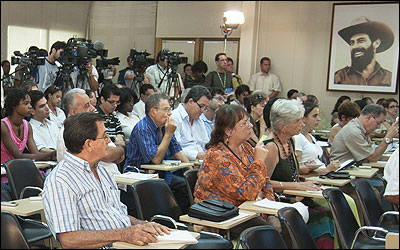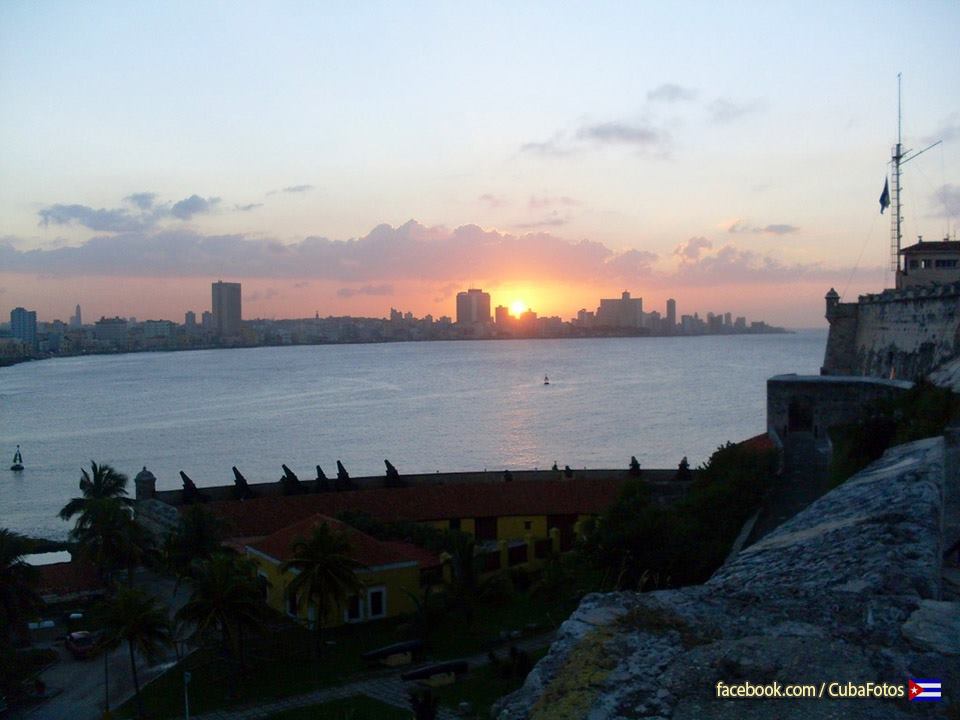CINEASTAS CUBANOS ACUSAN AL GOBIERNO POR LA CENSURA.
Un grupo de prominentes cineastas cubanos acusaron a las autoridades gubernamentales de censurar la película Regreso a Itaca, del realizador francés Laurent Cantet, durante la celebración del XXXVI Festival Internacional del Nuevo Cine Latinoamericano de La Habana.
“Un acto de censura tuvo lugar durante el 36 Festival Internacional del Nuevo Cine Latinoamericano: por imposición de las máximas autoridades del Ministerio de Cultura y el ICAIC [Instituto de Cine], la dirección del Festival fue obligada a retirar la película Regreso a Ítaca, del director francés Laurent Cantet, denunció una carta hecha pública este fin de semana por un grupo de 12 realizadores cubanos.
El Regreso a Ithaca.
Entre los firmantes se encuentran los directores Fernando Pérez, Manuel Pérez, Ernesto Daranas y Enrique Alvarez, la documentalista Rebeca Chávez y los escritores y guionistas Senel Paz y Arturo Arango, todos pertenecientes al llamado G-20.
La misiva rechazó la acción de censura contra el filme por considerarla “ajeno por completo al espíritu cultural de la nación cubana” y responsabilizó a los censores y funcionarios que ejecutaron las órdenes por las consecuencias que pudieran derivarse de este hecho.
La película fue registrada en el catálogo oficial del Festival y estaba programada para exhibirse en función única, el 12 de diciembre en el cine Charles Chaplin, pero fue abruptamente retirada de la cartelera.
El festival concluyó el pasado 14 de diciembre, pero la carta fue fechada el pasado 17 de diciembre. Los cineastas dicen que decidieron no realizar nunguna acción pública hasta ahora para no interferir en el desarrollo del evento y luego postergaron la publicación de la carta a causa de los recientes “acontecimientos que han conmocionado al país”, como el retorno de los tres espías de la Red Avispa y el anuncio del restablecimiento de las relaciones diplomáticas entre Cuba y Estados Unidos,
El documento comenzó a circular desde el sábado por la internet, acompañada de una carta de Cantet, solidarizándose con la lucha de los cineastas en defensa de la libertad de creación y expresión en la isla.
Cantet, una laureada figura del cine contemporáneo, filmó Regreso a Itaca en 20 días en una azotea de La Habana, durante diciembre del 2013.
“Quisiera ante todo decirles cuanto me ha emocionado vuestro empeño y asegurarles que si por mi parte he decidido guardar silencio ha sido para no interferir en vuestra lucha. Leonardo me aconsejo que no interviniera y yo he respetado su criterio”, explicó el realizador francés. “Esta película que hice con una ternura extrema me parece que esta más cerca de un mensaje de amor para el pueblo cubano que de una tesis contrarrevolucionaria con la que la han querido empañar”.
En su protesta pública, los cineastas también critican la pasividad de la Unión de Escritores y Artistas de Cuba (UNEAC) ante la prohibición de la película.
Agencies/CafeFuerte/InternetPhotos/www.thecubanhistory.com
The Cuban History, Hollywood.
Arnoldo Varona, Editor.
strong> CUBAN FILMMAKERS ACCUSE THE GOVERNMENT BECAUSE CENSORSHIP.
A group of prominent Cuban filmmakers accused government authorities to censor the film Return to Ithaca, the French director Laurent Cantet, during the celebration of the XXXVI Havana Film Festival.
“An act of censorship took place during the 36th International Festival of New Latin American Cinema: by imposing the highest authorities of the Ministry of Culture and the ICAIC [Film Institute], the Festival was forced to withdraw the film Return to Ithaca, French director Laurent Cantet, he denounced a letter made public this weekend by a group of 12 Cuban filmmakers.
Return to Ithaca.
Among the signatories are the directors Fernando Perez, Manuel Perez, Ernesto Daranas and Enrique Alvarez, the filmmaker Rebeca Chávez and writers and screenwriters Senel Paz and Arturo Arango, all belonging to the so-called G-20.
The letter rejected the action of censorship against the film considering it “completely oblivious to the cultural spirit of the Cuban nation” and blamed the censors and officials who carried out the orders for the consequences that may arise from this.
The film was recorded in the official catalog of the Festival and was scheduled to be exhibited in one function, December 12 at the Charles Chaplin film, but was abruptly removed from the bill.
The festival concluded on December 14, but the letter was dated December 17. The filmmakers say they decided not to make public action nunguna so far as to not interfere in the running of the event and then delayed the publication of the letter because of the recent “events that have shocked the country” as the return of the three spies Wasp Network and the announcement of the establishment of diplomatic relations between Cuba and the United States,
The document began circulating since Saturday internet, accompanied by a letter from Cantet, in solidarity with the struggle of the filmmakers in defense of freedom of creation and expression on the island.
Cantet, an award-winning figure in contemporary cinema, filmed Return to Ithaca in 20 days on a rooftop in Havana in December 2013.
“I would like first of all tell you how much it moved me your commitment and assure them that if for my part I have decided to remain silent has been to not interfere with your struggle. Leonardo advised me not to intervene and I respected his judgment, “the French director. “This film I made with extreme tenderness seems to me that this closer to a love message to the Cuban people that a counter-thesis with which wanted to tarnish”.
In his public protest, the filmmakers also criticize the passivity of the National Union of Writers and Artists of Cuba (UNEAC) to ban the film.
Agencies / CaféFuerte / InternetPhotos / www.thecubanhistory.com
The Cuban History, Hollywood.
Arnoldo Varona, Editor.








